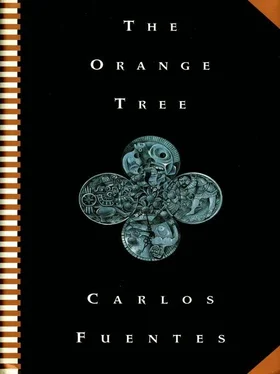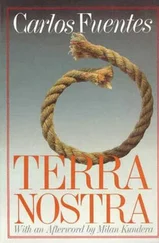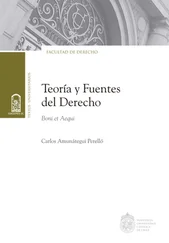I would have enough trouble eliminating all the lies about me and admitting that I’m not Catalan, Galician, Majorcan, or Genoese. I am a Sephardic Jew whose family fled Spain because of the usual persecutions: one more, one of so many, not the first and not the last …
* * *
The reader of these notes dedicated to chance will no doubt understand the reasons behind my silence, my abstention, my staying in Antilia. I wanted to attribute the care with which I was treated to my personal charm or to my empathy with those who received me. I paid no attention to the rumors that transformed me into the protagonist of a divine legend. Me, a bearded white god? Me, punctually returning to see if mankind had taken care of the earth I’d given them? I remembered the breasts of my wet nurses and took a big bite out of the orange that’s always at my side, perennially renewed, almost my scepter.
From the top of my high, whitewashed belvedere, I see the length and breadth of the lands and the confluence of the rivers, the gulf, and the sea. Seven rivers flow down, some calm and others torrential (including one waterfall), to fill the gulf, which, in turn, gently opens on to a sea protected from its own rage by coral reefs. My white house, cooled by the trade winds, dominates the orange groves and is defended by dozens of laurels. Behind me, the mountains whisper their names: pine and cypress, oak and strawberry. Royal eagles perch on the white summits; butterflies descend like another waterfall, half gold, half rain; all the birds in the world meet in this immaculate air, from cranes, macaws, and owls wearing black glasses to those I identify more by their looks than by their names: birds like witches with black ears, birds that unfold what look like huge parasols, others dressed in the red of princes of the Church, others with plantlike throats, woodpeckers and squirrel birds, birds with red beaks and doves with short beaks, birds that sound like trumpets and others that sound like clocks, jacamars and ant-eating birds who live off the abundance of those they consume. The permanent cry of the caracara bird presides over all: my earthbound falcon that has never flown but which, dragging itself over the earth, devours waste and in so doing redeems life.
Beyond the visible life of my earthly paradise is what sustains it, the minutiae of invisible life. The richness of animal life is obvious, and the crow, the ocelot, the tapir, and the ounce mark their paths through the jungle or the forest clearly. They would get lost without the guidance of the living odors that are the routes of the silence and the night. The araguato monkey, the armadillo, the jaguar, and the iguana are all guided by millions of invisible organisms that purge the water and the air of their daily poisons, just as the caracara falcon does it right before our eyes. The aroma of the jungle is dispelled by millions of hidden little bodies that are like the invisible light of the forest.
They await the night to move around and learn things. We wait for the dawn. I look at the enormous, downy ears of the gray-brown wolf that comes up to my door every night. Blood rushes into those ears and allows heat to escape. It’s the symbol of life in the tropics, where everything is arranged for living well, provided we want to prolong life and respect its natural flow. But everything turns against us the instant we show hostility and try to dominate nature by harming it. The men and women of my new world know how to care for the earth. I tell them that from time to time, which is why they venerate and protect me, even if I’m not God.
I compare this life with the one I left behind in Europe and shudder. Cities buried in garbage, redeemed from time to time by fire, but immediately drowned in soot. Cities with visible intestines, crowned with feces, along whose gutters flow pus and urine, menstrual blood and vomit, useless semen and dead cats. Cities without light, narrow, cramped, where everything wanders, ghostlike, or nods off like a succubus. Beggars, thieves, the insane, multitudes talking to themselves, skulking rats, runaway dogs that return in packs, migraines, fevers, vertigoes, tremors, hard volcanoes of blood between the legs and in the armpits, a black pattern on the skin: forty days of abstinence did not prevent forty million deaths in Europe. The cities were depopulated. Bands of looters came in to steal our possessions, and animals took over our beds. Our eyeballs burst. Our people were accused of poisoning wells. We were expelled from Spain.
Now I live in Paradise.
For how long? Sometimes I think about my family, about my scattered people. Do I also have a family, a wife, children here in this new world? Possibly. To live in Paradise is to live without consequences. My loves pass over my skin and my memory like water through a filter. What’s left is more a sensation than a memory. It’s as if time hadn’t passed since I reached these lands and took up residence in the white mansion with the orange trees.
I cultivate my own garden. My most immediate sensual pleasures occur in the orange grove — I look, touch, peel, bite, and swallow. So do the oldest of sensations: my mother, wet nurses, breasts, the sphere, the world, the egg …
If I want my personal story to have a collective resonance, I’ll have to go beyond the breast-orange to the two memory objects I’ve always borne with me. One is the key to the ancestral house of my forefathers in the Toledo ghetto. Expelled from Spain by persecution, we never lost the language of Castile or the key to our home. It’s passed from hand to hand. It’s never been a cold key despite being made of metal. Too many Jewish palms, fingers, and fingertips have fondled it.
The other thing is a prayer. We Sephardic Jews all travel with it and nail it to the door of our closets. I do the same thing in Antilia. I’ve improvised a clothing chest that holds, like mementos, my old doublet, my jerkin, and my breeches — my New World friends have taught me to wear linen, smooth and soft, white and airy: a shirt and trousers, sandals. To the chest I’ve nailed the prayer of the Jewish émigrés, which goes like this:
Mother Spain, you have been cruel to your Israelite children. You have persecuted and expelled us. We have left behind our houses, our lands, but not our memories. Despite your cruelty, we love you, Spain, and we long to return to you. One day you will receive your wandering children, you will open your arms to them, ask their forgiveness, and recognize our fidelity to your land. We shall return to our houses. This is the key. This is the prayer.
I recite it, and, almost like a satisfied desire, a memory returns to me of my disastrous arrival, shrieking like a caracara bird. I am sitting on my balcony at the first hour, doing what I do best: contemplating. The earliest breezes are blowing. The only thing missing is the sound of nightingales. I have recited the prayer of the Sephardic return to Spain. I don’t know why, but I’m thinking about something that never worries me because I’m so used to it. Antilia is a land that appears and disappears periodically. I haven’t discovered the laws that govern this mutability, and I prefer not knowing them. I’m afraid that knowing the calendar of appearances and disappearances would be something like knowing the date of our death beforehand.
I prefer doing what nature and the real time of life ordain. Contemplation and enjoyment. But this morning, surprisingly, a white bird flies by carrying the stalk of a bulrush, the kind of bird sailors see with pleasure because it doesn’t sleep at sea; it’s a sign land is near. The trade winds blow and the sea is as flat as a river. Crows, ducks, and a gannet pass over, fleeing to the southeast. Their haste alarms me. In a rare gesture, I stand up with a start as I see a kite floating high in the sky — a bird that makes gannets and other birds of prey vomit up their food and then eats it. It’s a seabird, but doesn’t land on the water, and never goes farther than twenty leagues out to sea.
Читать дальше












